Bangladesh’s agriculture relies on the timely and adequate supply of fertilizers to ensure food security and strong crop yields. In FY 2025–2026, the Ministry of Agriculture Bangladesh projects a staggering demand of over 6 million metric tons of fertilizers. Meeting this challenge requires strong private sector support, and Noapara Group is emerging as a leading solution provider in the fertilizer supply chain of Bangladesh. With a strong import network, advanced logistics, and a proven track record, Noapara is powering national agriculture forward.
The Fertilizer Frontier
Bangladesh’s agricultural success depends heavily on timely and adequate fertilizer supply. The Ministry of Agriculture (MOA) has forecasted a total fertilizer demand of over 6 million metric tons for FY 2025–2026 — a huge challenge to meet. Noapara Group, a leader in the private sector fertilizer market, is stepping up to this challenge with proven import, logistics, and distribution capabilities.
Fertilizer Demand Snapshot (FY 2025–2026)
| Fertilizer Type | Total Demand (MT) |
| TSP | 950,000 |
| DAP | 1,800,000 |
| MOP | 1,150,000 |
| Urea | 3,200,000 |
Includes firm demand + safety stock
Overcoming Agricultural Fertilizer Shortages in Bangladesh
Despite being an agriculture-driven nation, Bangladesh continues to struggle with seasonal fertilizer shortages, especially during the critical Aman and Rabi cropping periods. These shortages do more than delay planting — they disrupt entire cultivation cycles, reduce yields, and put the country’s food security at serious risk. For the farmers who depend on each harvest not only for livelihood but also to feed millions, even a few days of delay can lead to devastating losses.
The government, despite its extensive efforts, cannot shoulder this burden alone. It needs reliable private sector partners—partners with the capacity to import large volumes, respond swiftly to tenders, and reach the most remote corners of the country. Without their support, the supply chain remains fragile, and millions of farmers are left vulnerable, caught between uncertain weather and an unreliable supply of what they need most to grow — fertilizer.
Meeting Demand Head-On: The Fertilizer Supply Solution
To overcome the seasonal shortages and supply chain stresses threatening Bangladesh’s agricultural productivity, a timely and sufficient supply of over 6 million metric tons of fertilizer is essential for FY 2025–2026. This includes:
- 3.2 million MT of Urea
- 1.8 million MT of DAP
- 1.15 million MT of MOP
- 950,000 MT of TSP
Achieving this volume requires seamless coordination between government agencies and capable private sector partners who can import, store, and distribute fertilizers efficiently across the country. By fulfilling these demands without delay, the supply chain can maintain stability, safeguard planting cycles, and ultimately secure food production for millions of farmers and consumers.
Stakeholder Roles in Meeting National Fertilizer Demand
To fulfill the nationwide demand, the Ministry of Agriculture has adopted a multi-source procurement model. This strategy balances government-level imports, private sector participation, and local production to ensure uninterrupted supply across all regions.
| Source | Responsibility Description |
| BADC | Leads with Government-to-Government (G2G) contracts covering major volumes |
| Private Sector | Covers ~60% of private import volumes for TSP, DAP, and MOP fertilizers |
| BCIC | Supports through local production and partial imports |
Noapara Group: The Private Sector Powerhouse
Noapara Group has established itself as a key force in Bangladesh’s private fertilizer import landscape, handling an estimated 60% of all private sector fertilizer imports. This scale of involvement reflects both their operational strength and trust built over years of consistent performance.
Their logistics and infrastructure capabilities are a major competitive edge — with dedicated terminals at key ports and expansive inland storage facilities in Jessore, they ensure smooth handling, warehousing, and nationwide distribution.
What sets Noapara apart further is its strong global network. Through long-standing partnerships with reputed international fertilizer suppliers, they maintain a stable and diversified sourcing pipeline. Backed by a proven track record of winning and fulfilling MOA tenders, Noapara Group has become a dependable pillar in the government’s fertilizer distribution strategy.
Noapara Group’s Strategic Importance in FY 2025–2026
Noapara Group plays a pivotal role in supporting Bangladesh’s agricultural productivity and food security. By ensuring the timely availability of essential fertilizers, they directly contribute to healthy crop yields and sustainable food production.
During peak demand seasons, such as Aman and Rabi, their efficient import and distribution operations help prevent supply shortages that could otherwise disrupt cultivation. Moreover, Noapara Group significantly reduces dependency on government sources by covering a large portion of private sector imports — adding flexibility and resilience to the national fertilizer supply chain.
Most importantly, they stand beside the country’s farmers. Their ability to deliver fertilizers on time, where it’s needed most, ensures that farmers can maintain productivity, avoid losses, and continue feeding the nation.
Noapara Group’s Estimated Contribution
To better understand Noapara Group’s impact within the private sector, the table below outlines their estimated share of fertilizer imports across key product categories. These figures highlight the Group’s substantial role in meeting the Ministry of Agriculture’s private sector targets:
| Fertilizer Type | Private Sector Demand (MT) | Noapara Group’s Estimated Share (MT) |
| TSP | 200,000 | ~120,000 (60%) |
| DAP | 575,000 | ~345,000 (60%) |
| MOP | 200,000 | ~120,000 (60%) |
Conclusion
Noapara Group stands as a cornerstone of Bangladesh’s fertilizer supply chain. Their expertise in large-scale fertilizer import, advanced logistics, and timely nationwide distribution plays a critical role in fulfilling MOA’s ambitious targets for FY 2025–2026.
By delivering when it matters most, Noapara not only supports farmers but also contributes directly to the nation’s food security, agricultural sustainability, and economic resilience.
















